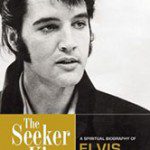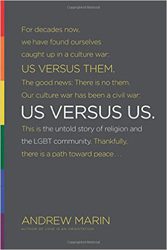Lectionary Reflections for Sunday, January 26, 2014
Isaiah 9:1-4 ; Psalm 27:1, 4-9; I Corinthians 1:10-18; Matthew 4:12-23
Today’s readings capture the spirit of the magi. Following the star, they find Jesus. The light of the Christ Child still shines are guides the way of pilgrims and those who struggle with personal and communal dis-ease.
Light brings rejoicing. After years of chaos and despair, the light has come. The path ahead is clear and hope is on the horizon. So, delights Isaiah, as he sees his nation’s fortunes restored. Corporate and individual are interdependent; so the health of the nation will bring health to individuals, especially those who have suffered most in this time of destitution. We see the way toward God’s future, and God’s future embraces all who are lost and searching.
The Psalmist affirms that God is our light and salvation; God is our life’s stronghold. We need no longer be afraid of anything for God has the final word in our lives and history. The Psalmist does not deny challenge. In fact, like Psalm 23, there is an implicit threat, experienced by the Psalmist’s worshipping community. There are things of which we can be afraid, not just things that go bump in the night, but enemies who threaten our national integrity. Nevertheless, God’s presence dwarfs the objects of our fear. Neither the Psalm nor Isaiah is for the faint-hearted. These words come from those who have lived with tragedy and loss, but have found God’s blessing amid our pain.
Paul invites the deeply-divided Corinthian church to reclaim the mind of Christ. It is hard not to think of Philippians 2:5-11 when you read of Paul’s cry for Christian unity. Perhaps his vision of the “mind of Christ,” the deepest reality of Christian experience, motivates his words. The mind of Christ is all-embracing, welcoming, and relational. Power and truth are not found in unilateral and judgmental orthodoxies, of being right while others are wrong, but in loving relationships.
Paul is not disparaging doctrine or diversity, but placing these in the context of God’s reconciling love. Christ brings unity without uniformity. The various Corinthian religious movements are of value and reflect God’s wisdom, but they become harmful when they are seen as final. Doctrinal, ecclesiastical, liturgical, and charismatic finality leads to diminution and division. Christ is bigger than any religious movement. Though we may cherish our pathways, they are always penultimate, relative, and subject to revision. Doctrines are judged by their fruits, by the behaviors they inspire, and as Paul says in I Corinthians 13, the greatest of all things is love.
The Gospel describes the beginnings of Jesus’ public ministry. When John is arrested, Jesus must choose to move to the forefront of sharing God’s good news. He becomes the embodiment of God’s light in the darkness – the fulfillment of Isaiah’s hope – as he preaches a message of turning and transformation. Jesus cannot preach the good news alone: he calls Peter, Andrew, and the Zebedee boys to be his companions in ministry. Ministry is a communal enterprise, and the ministry of Jesus is more than mere words; it is love in action. Jesus’ message transforms whole persons and communities. Good news preaching embraces the healing of bodies, minds, and spirits. Preaching is embodied in the actions of a healing community: the world becomes flesh, dwells among us, and transforms our world.
God’s good news is transformational and so is ours. Sermons are intended to bring healing and wholeness. Clever words are “noisy gongs and clanging cymbals” if they are solely intellectual. Cells as well as souls must find wholeness.
The call of Jesus is “Follow me and I will make you fish for people.” Jesus’ words are calls to meaning. If you follow my path, you will make a difference in peoples’ lives. Following me will bring wholeness to your life and you will share that wholeness with others. Our fishing is no longer for material gain, to make a profit, or to use the object of our work as a means to an end. Our fishing benefits the others by inviting them to live fully alive in God’s realm.
Where do we see light today? In what way can we be light-bearers and light-bringers? The light that guides our way streams through us and gives light others. Where is our congregation called to bring life and light to the world; to reach out – fishing for persons – so that others might have a full share in God’s realm? God’s realm challenges us to follow the path of Jesus and this means a commitment to healing cells and souls; to pray for God’s healing touch on those who are sick and to be partners in creating an institutional structure that nurtures health at every level of our community.













